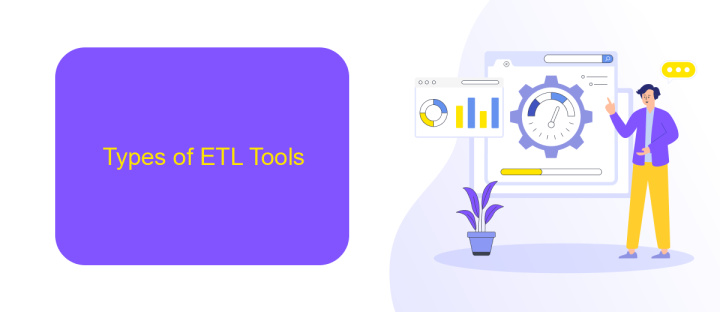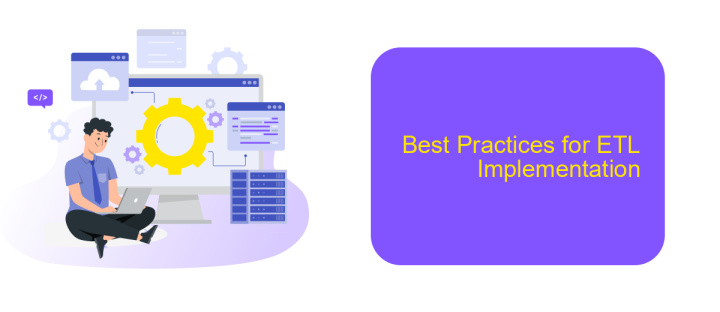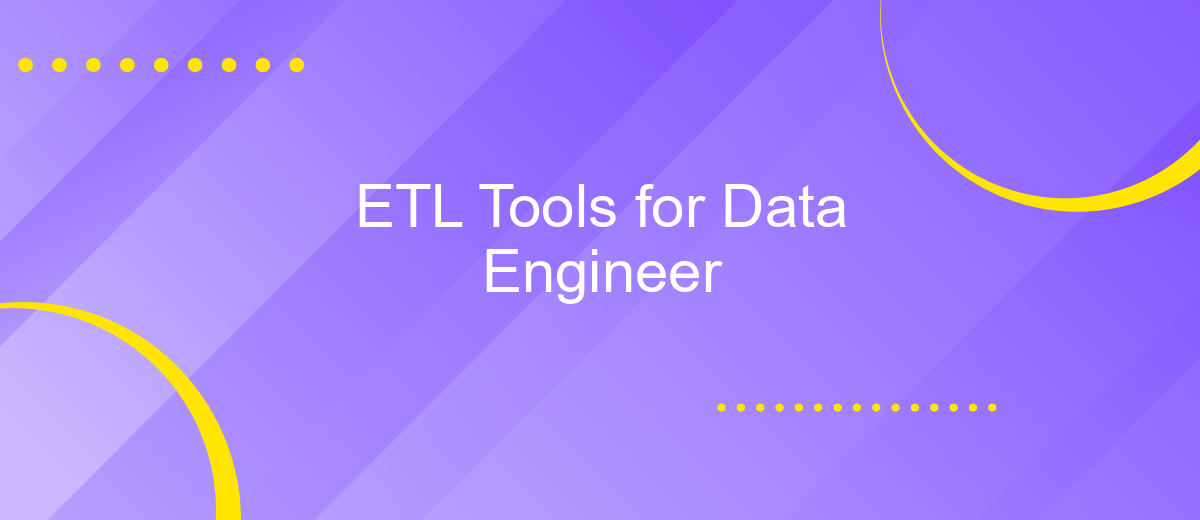ETL Tools for Data Engineer
In the realm of data engineering, ETL (Extract, Transform, Load) tools are indispensable for the efficient handling of vast amounts of data. These tools streamline the process of data integration, enabling engineers to extract data from various sources, transform it into a usable format, and load it into a target database. This article explores the top ETL tools that every data engineer should know.
Introduction to ETL Tools for Data Engineers
ETL tools are essential for data engineers, facilitating the extraction, transformation, and loading of data from various sources to target destinations. These tools streamline data workflows, ensuring data is accurately and efficiently processed for analysis and reporting.
- Extraction: Collecting data from diverse sources such as databases, APIs, and flat files.
- Transformation: Converting data into a suitable format or structure for analysis.
- Loading: Moving transformed data to a data warehouse or other storage systems.
Modern ETL tools, like ApiX-Drive, offer robust integration capabilities, allowing seamless connectivity between different data sources and destinations. ApiX-Drive simplifies the setup of integrations, enabling data engineers to automate workflows without extensive coding. This efficiency is crucial for maintaining data integrity and supporting business intelligence initiatives.
Types of ETL Tools

ETL tools come in various types, each designed to address specific data integration needs. Traditional ETL tools, such as Informatica and Talend, focus on extracting data from multiple sources, transforming it according to business rules, and loading it into a data warehouse. These tools offer robust capabilities for handling large volumes of data and complex transformations, making them suitable for enterprise-level applications.
Cloud-based ETL tools like ApiX-Drive provide a more flexible and scalable solution. These tools leverage the power of cloud computing to handle data integration tasks seamlessly. ApiX-Drive, for instance, allows users to set up integrations quickly without needing extensive coding knowledge. It supports a wide range of applications and services, making it an ideal choice for businesses looking to streamline their data workflows. Additionally, open-source ETL tools such as Apache NiFi and Airbyte offer cost-effective alternatives with strong community support and customization options.
Key Features to Consider

When evaluating ETL tools for data engineering, it's crucial to consider several key features that can significantly impact your workflow and efficiency. Choosing the right tool ensures seamless data integration, transformation, and loading processes.
- Data Source Connectivity: The tool should support a wide range of data sources, including databases, cloud storage, and APIs. Tools like ApiX-Drive facilitate seamless integration with various platforms.
- Scalability: Ensure the ETL tool can handle increasing data volumes and scale as your business grows, maintaining performance and reliability.
- Transformation Capabilities: Look for robust data transformation features, including cleansing, mapping, and aggregation, to prepare data for analysis.
- Automation and Scheduling: The ability to automate ETL processes and schedule tasks reduces manual intervention and ensures timely data updates.
- Data Quality and Governance: Features like data validation, error handling, and audit trails help maintain data integrity and compliance.
By considering these features, you can select an ETL tool that not only meets your current needs but also supports future growth and data management requirements. Tools like ApiX-Drive can simplify the integration process, enhancing overall efficiency and productivity.
Best Practices for ETL Implementation

Implementing ETL processes effectively is crucial for data engineers to ensure data integrity, scalability, and performance. One of the best practices is to start with a clear understanding of the data sources and the business requirements. This helps in designing an ETL process that is not only efficient but also aligned with organizational goals.
Another key practice is to automate as much of the ETL process as possible. Automation minimizes human errors and ensures that the ETL processes run smoothly and consistently. Tools like ApiX-Drive can be instrumental in setting up automated integrations between various data sources and your ETL pipeline.
- Ensure data quality by implementing validation checks at each stage of the ETL process.
- Monitor ETL processes in real-time to quickly identify and resolve issues.
- Document the ETL processes thoroughly to facilitate maintenance and troubleshooting.
- Use scalable ETL tools that can handle increasing data volumes efficiently.
Lastly, it is essential to continuously review and optimize your ETL processes. Regular audits help in identifying bottlenecks and areas for improvement, ensuring that your ETL pipeline remains robust and efficient over time. By following these best practices, data engineers can create reliable and high-performing ETL systems.
Conclusion
In conclusion, ETL tools play a pivotal role in the data engineering landscape, enabling efficient data extraction, transformation, and loading processes. These tools not only streamline data workflows but also ensure data integrity and quality, which are essential for informed decision-making. The right ETL tool can significantly reduce the complexity and time required to manage large volumes of data, making it an indispensable asset for data engineers.
Moreover, integrating ETL tools with other services can further enhance their capabilities. For instance, ApiX-Drive offers a seamless way to automate data integrations across various platforms, reducing manual effort and minimizing errors. By leveraging such integrations, data engineers can focus more on data analysis and less on the intricacies of data management. Therefore, choosing the appropriate ETL tool and complementary services like ApiX-Drive can greatly enhance the efficiency and effectiveness of data engineering tasks.
FAQ
What is an ETL tool and why is it important for data engineers?
How do ETL tools handle data integration from multiple sources?
Can ETL tools automate data workflows?
What are some key features to look for in an ETL tool?
How can ETL tools help in maintaining data quality?
Time is the most valuable resource in today's business realities. By eliminating the routine from work processes, you will get more opportunities to implement the most daring plans and ideas. Choose – you can continue to waste time, money and nerves on inefficient solutions, or you can use ApiX-Drive, automating work processes and achieving results with minimal investment of money, effort and human resources.

